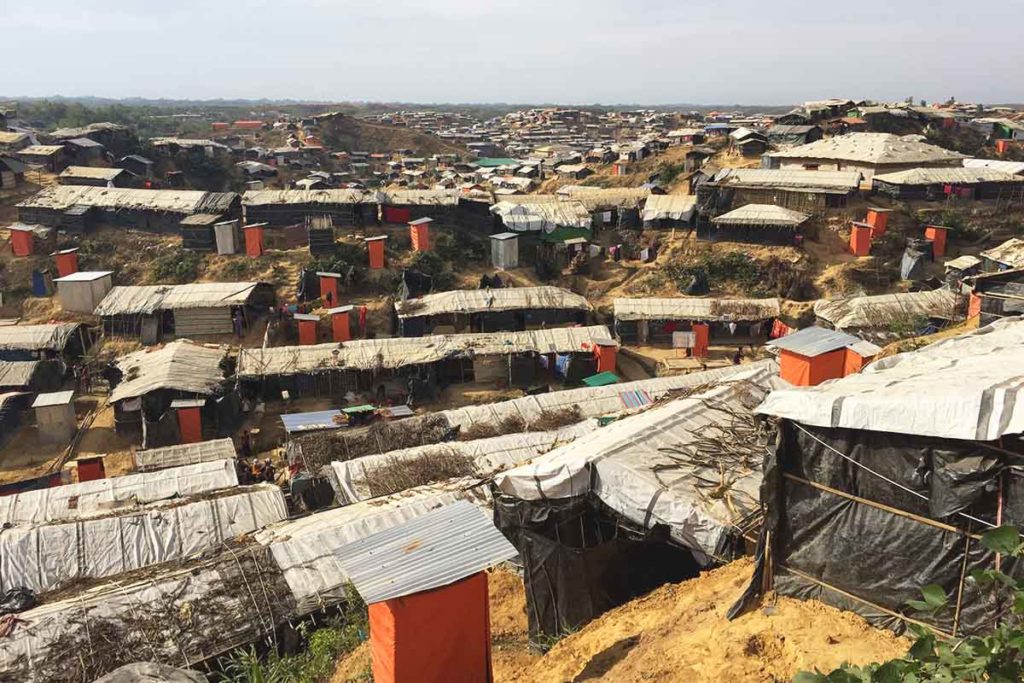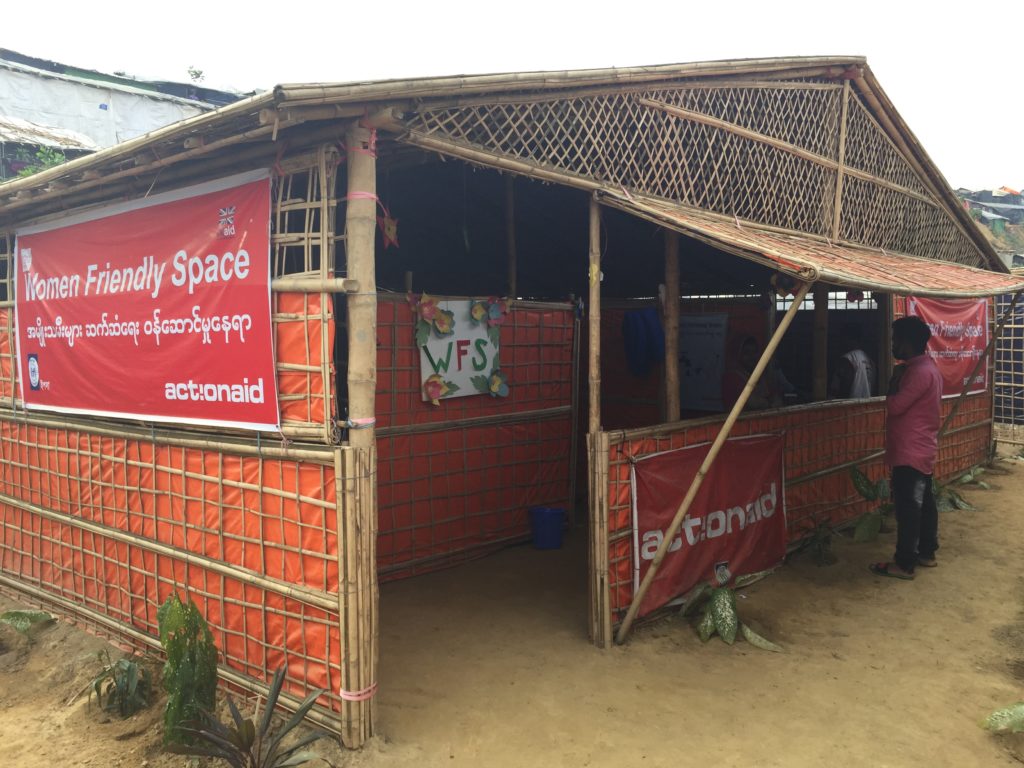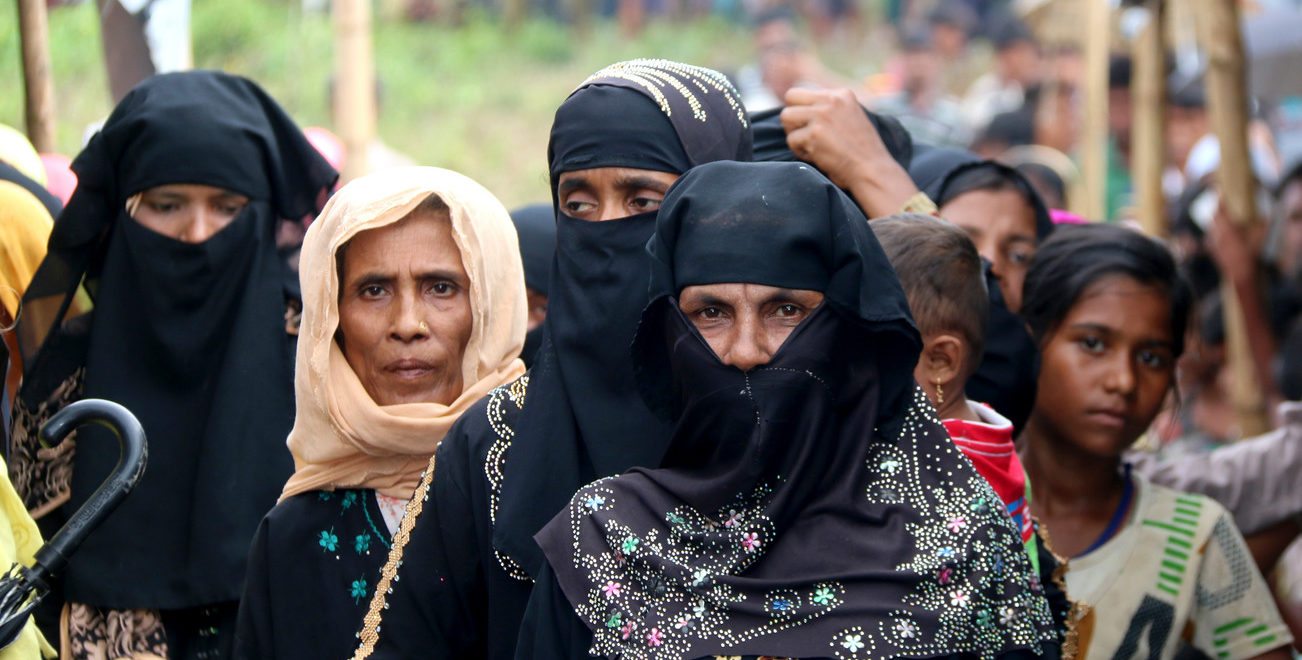Tomorrow, people will be back on the National Mall for the 2018 Women’s March. This year, I won’t be there. Instead, I’m in the world’s largest refugee camp in Bangladesh, where ActionAid is supporting Rohingya women and their communities as they rebuild their lives, having fled what the United Nations has called “a textbook example of ethnic cleansing” in their native Myanmar.

More than 655,000 Rohingya refugees have fled Myanmar since August 25, 2017. Photo: Chris Coxon/ActionAid
This time last year, I remember being amazed by the sheer numbers of people that showed up in Washington D.C. and at marches across the country. They turned out in defiance of the newly inaugurated President – a man who had bragged about assaulting women.
Trump moved quickly on his first official working day surrounded by a group of smiling white men as he not only re-instated, but massively expanded, the “Global Gag Rule”, an executive order that seeks to prevent international human rights and development organizations like ActionAid from providing family planning services. Thankfully, ActionAid doesn’t take USAID money so we’re one of the few organizations that is completely free to support women’s rights to plan their pregnancies, something I’m even more grateful for, as I see our work in Bangladesh.
I imagine at this year’s march there will be a celebration of the #MeToo movement that has empowered so many women to speak up about their experiences of sexual harassment, assault and rape and made people more aware of concepts like “rape culture”, in an effort to end gender-based violence.
Sitting this week with groups of young Rohingya women and girls, and hearing their stories, I’ve been struck by the fact that we’ve each had experiences of some form of gender-based violence. While they might not have used the exact phrase, their words and nodding heads as they listened to each another seemed to be saying, “Me Too.”
There are a lot of great articles and several clever cartoons that have helped to shine a light on the spectrum of sexual harassment that makes up rape culture. What might begin with a dirty joke or a catcall on the street, can easily escalate to bullying, manipulations, or even forced sex and rape. Although these articles remind us that rape in a dark alley with a weapon by a stranger is relatively rare, these young Rohingya women have experienced abuse that sits across this spectrum of violence.
The Rohingya refugee crisis burst onto the world stage on August 25, 2017, when women, children and men began flooding into Bangladesh from Rakhine State in neighboring Myanmar. They brought with them horrific accounts of atrocities ranging from their homes and villages being burned to the ground, to mothers, daughters, wives and husbands being dragged out of their homes and raped and murdered.
This was the first time that many people around the world had heard about the Rohingya people, but in reality this latest wave of violence follows decades of persecution and assault.
The courageous and resilient survivors that I spoke with this week talked about being harassed even from a very early age. When they got their period they couldn’t leave their homes for fear of rape by the Myanmar military. Many of them now living in the camps in Cox’s Bazar are so young, yet they’ve already experienced so much pain.
But they’re also really resilient. After sharing their heartbreaking stories with me, they quickly brightened up when talking about how much they enjoy their freedom in the camp. They can leave the huts they now call home and come to ActionAid’s Women’s Safe Space where they can make friends, share, heal, teach or learn new skills. The favorite seems to be learning to sew.

Women’s Safe Space in Cox’s Bazar. Photo: Chris Coxon/ActionAid
They tell me that they will never go back to being confined in the home. They’re determined to build their future.
And we can help! We can support their growing leadership in the camps. We can hear and then help carry forward their demands for a future that is safe and secure, where they can realize their rights.
So if you are going to march this weekend – please bring with you the spirit of these courageous survivors. Because our liberation is entwined with theirs, and theirs with ours.


